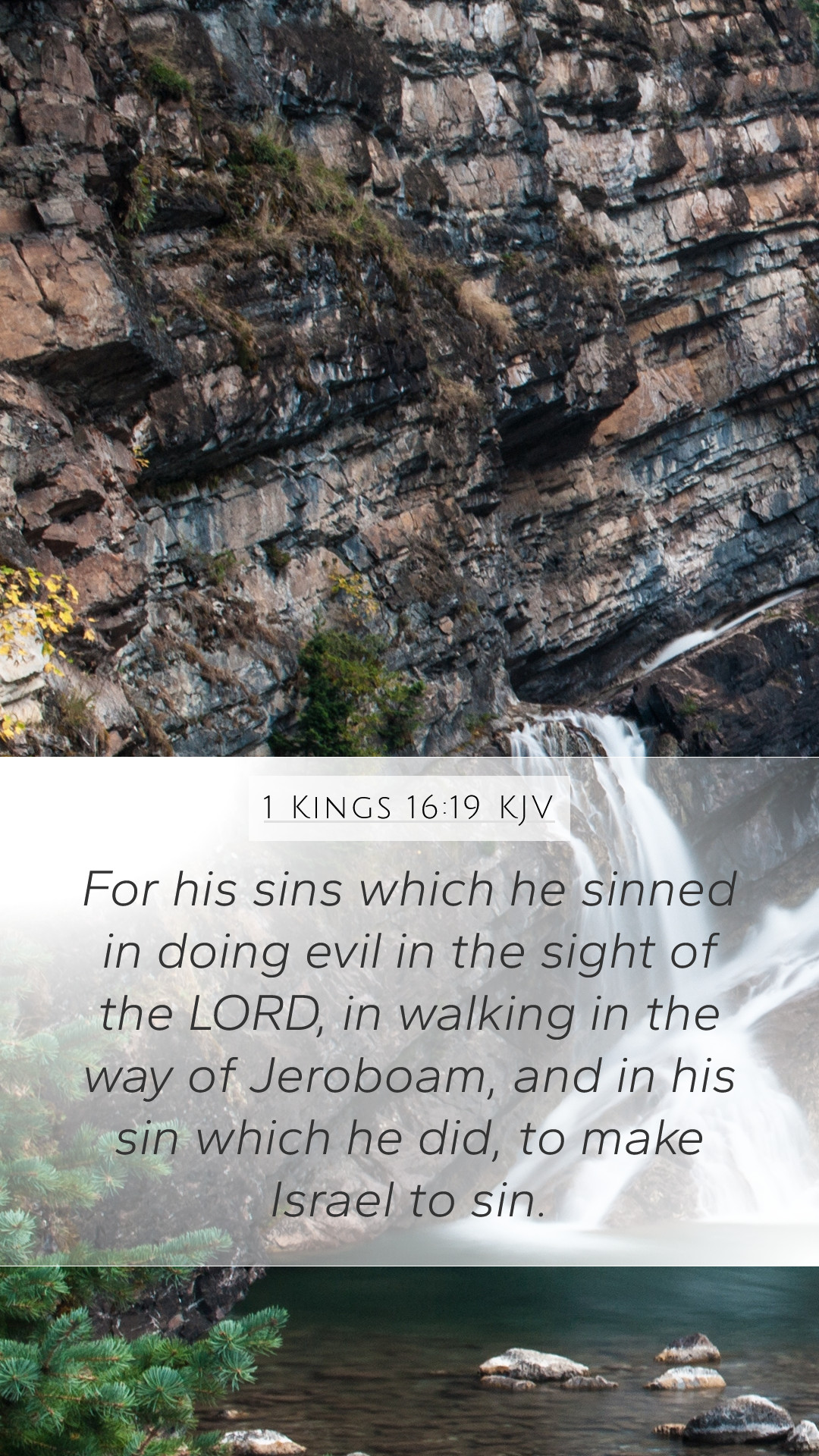Bible Verse Commentary: 1 Kings 16:19
Bible Verse: 1 Kings 16:19 - "For his sins which he sinned in doing evil in the sight of the Lord, in walking in the way of Jeroboam, and in his sin which he did, to make Israel to sin."
Overview of 1 Kings 16:19
This verse serves as a critical evaluation of King Zimri's reign, shedding light on the spiritual condition of Israel during his brief rule. It encapsulates the consequences of leading a nation into sin through ungodly practices, drawing parallels to Jeroboam's legacy.
Insights from Commentary
This section summarizes insights from various public domain commentaries.
Matthew Henry's Commentary
Henry notes that Zimri's reign was marked by sin and rebellion against God. He emphasizes the idea that sin is a serious affront in the eyes of the Lord and leads to national corruption. The reference to Jeroboam highlights the widespread impact of sin; leaders set the tone for their people. Zimri followed in the footsteps of a wicked predecessor, which serves as a warning regarding the influence of leadership on collective morality.
Albert Barnes' Notes on the Bible
Barnes provides an analysis that focuses on the nature of Zimri’s sin, specifically highlighting it as a direct imitation of Jeroboam's idolatrous practices. He remarks that this verse serves as a reminder that leadership comes with grave responsibilities. Barnes conveys the message that the unrepentant actions of leaders can lead to dire consequences, both personally and nationally, and calls for a reflection on the real weight of sin.
Adam Clarke's Commentary
Clarke's exposition extends the understanding of Zimri’s character and actions, noting how they contributed to Israel’s downfall. He depicts Zimri as a symbol of reckless ambition, whose transient rule did not fulfill God’s purposes. Clarke emphasizes that the historical context of this verse should inspire readers to consider how personal choices ripple through history, affecting the next generation. The emphasis on 'making Israel to sin' underscores the collective accountability borne by ominous leadership.
Lessons and Application
The verse speaks profoundly on the influence of leaders in a community or nation. The implications of this can serve as a guiding principle for various aspects of life:
- Reflective Leadership: Those in positions of authority must consider their impact on followers.
- Understanding Sin: Recognizing the nature of sin as not only a personal matter, but one that affects a broader community.
- Spiritual Heritage: The actions of leaders mold the spiritual destiny of their followers.
Further Cross-References
- 1 Kings 12:26-30 - The establishment of Jeroboam's idolatrous practices.
- 2 Chronicles 24:2 - Reflects on the importance of doing right in the sight of the Lord.
- Exodus 20:5 - The warning against idolatry and its consequences.
Conclusion
In conclusion, 1 Kings 16:19 highlights the dire consequences of sin, particularly in the context of leadership. It serves as a reminder of the profound impact that leaders have on their communities, making the understanding of this verse essential for both personal self-examination and communal accountability in faith. Engaging in bible study and utilizing bible study tools can provide deeper insights into such critical passages.
SEO Keywords
In this commentary, we have integrated a variety of keywords that can aid those engaged in bible study, seeking bible verse explanations and bible verse meanings. Additionally, the commentary touches on vital bible study topics and offers guidance on understanding difficult Bible passages.


